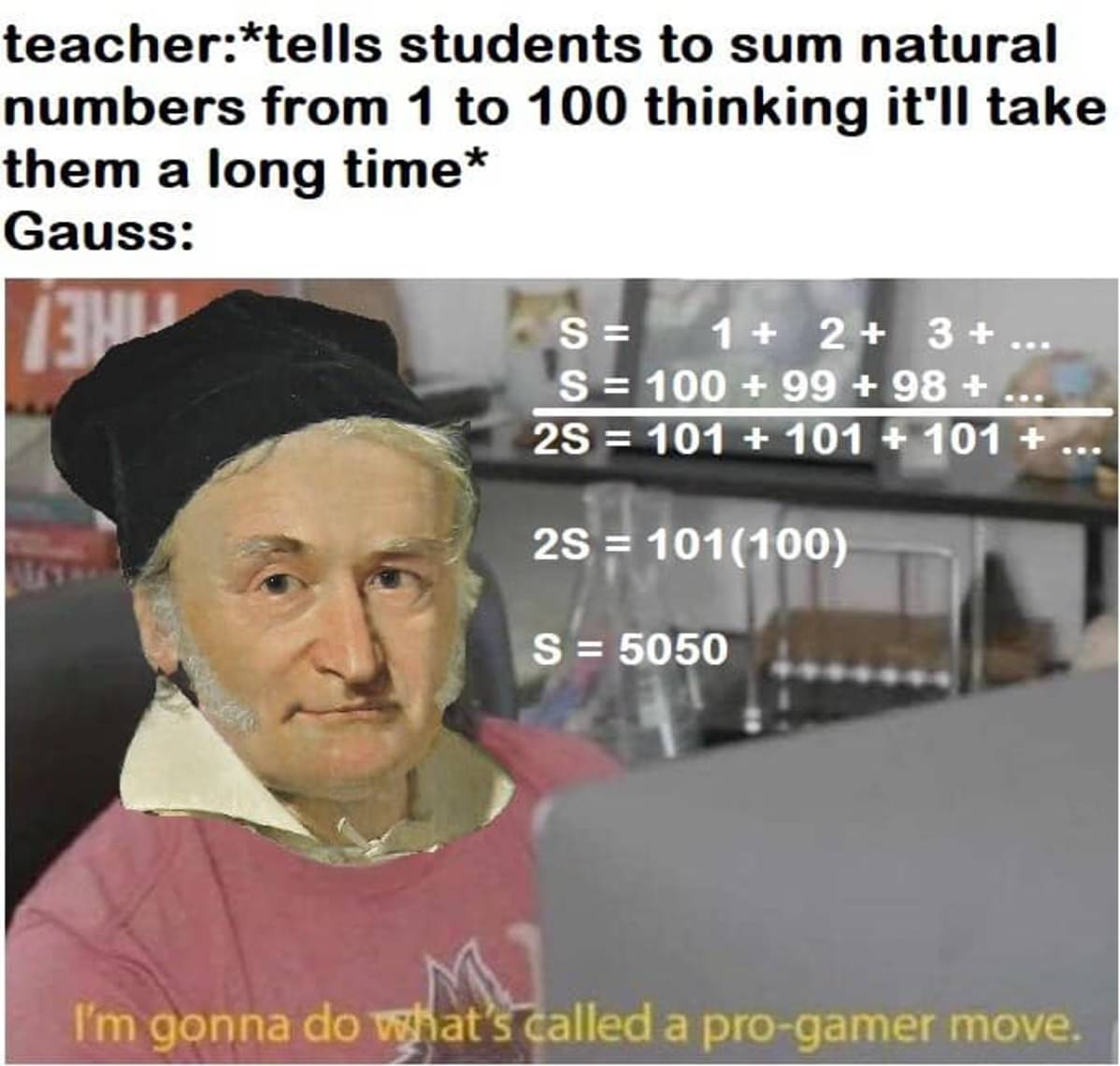this post was submitted on 04 May 2024
706 points (99.3% liked)
Science Memes
13088 readers
1602 users here now
Welcome to c/science_memes @ Mander.xyz!
A place for majestic STEMLORD peacocking, as well as memes about the realities of working in a lab.

Rules
- Don't throw mud. Behave like an intellectual and remember the human.
- Keep it rooted (on topic).
- No spam.
- Infographics welcome, get schooled.
This is a science community. We use the Dawkins definition of meme.
Research Committee
Other Mander Communities
Science and Research
Biology and Life Sciences
- !abiogenesis@mander.xyz
- !animal-behavior@mander.xyz
- !anthropology@mander.xyz
- !arachnology@mander.xyz
- !balconygardening@slrpnk.net
- !biodiversity@mander.xyz
- !biology@mander.xyz
- !biophysics@mander.xyz
- !botany@mander.xyz
- !ecology@mander.xyz
- !entomology@mander.xyz
- !fermentation@mander.xyz
- !herpetology@mander.xyz
- !houseplants@mander.xyz
- !medicine@mander.xyz
- !microscopy@mander.xyz
- !mycology@mander.xyz
- !nudibranchs@mander.xyz
- !nutrition@mander.xyz
- !palaeoecology@mander.xyz
- !palaeontology@mander.xyz
- !photosynthesis@mander.xyz
- !plantid@mander.xyz
- !plants@mander.xyz
- !reptiles and amphibians@mander.xyz
Physical Sciences
- !astronomy@mander.xyz
- !chemistry@mander.xyz
- !earthscience@mander.xyz
- !geography@mander.xyz
- !geospatial@mander.xyz
- !nuclear@mander.xyz
- !physics@mander.xyz
- !quantum-computing@mander.xyz
- !spectroscopy@mander.xyz
Humanities and Social Sciences
Practical and Applied Sciences
- !exercise-and sports-science@mander.xyz
- !gardening@mander.xyz
- !self sufficiency@mander.xyz
- !soilscience@slrpnk.net
- !terrariums@mander.xyz
- !timelapse@mander.xyz
Memes
Miscellaneous
founded 2 years ago
MODERATORS
you are viewing a single comment's thread
view the rest of the comments
view the rest of the comments

I remember learning this out of curiosity in the past, but math doesnt stick in my brain unless chemistry is used as a disguise. Where can I read about this method again? Will the wiki page on Gauss get me there efficiently enough?
you'll either get there, or to the Boston Molasses Disaster, so you'll learn something cool either way.
I know about this one! I think it was a Reactions video, which I believe is the American Chemical Society's yt channel
Add the Numbers from 1 to 100 like a 5-Year-Old! The Story of Gauss | Minute Math
I found that pretty handy. Came across it looking for a Numberphile video on the subject. I was pretty sure I’d seen one before but didn’t have a lot of luck finding it.
Just wanted to say thanks! Clicking your link made me realize I should try to figure out how to open up YT on PipePipe automatically, so now my phone works better :)
No problem. I have a script that automates generating the title and link to a video when sharing automatically.
I should look into having it do the same for pipe
So was he writing backwards, or did they print a custom flipped t-shirt?
I’ve always wondered how they do that. Because writing backwards would feel so weird to me
The sum of all natural numbers smaller than and including x is equal to
(x+1)(x/2)
The sum of all even numbers up to and including x is that minus (n/2)² so
[(x+1)(x/2)]-(x/2)²
That would mean the sum of all odd numbers under x is equal to
(x/2)²
or sum of all odd including x (if x is odd of course) is
[(x+1)/2]²
Since the sum of all even numbers up to x is the sum of all numbers minus the sum of all odd numbers.
[-(x/2)² +2x +1]/2 (another way of writing the sum of all evens under and including a number) looks suspiciously polynomial. I want to go further.
Edit:
Interestingly, the sum of all evens under and including x is larger than the sum of all odds under x by half of x. So
[(x+1)(x/2)-(x/2)²]-(x/2) = (x/2)²
So another formula for sum of all evens is
(x/2)²+(x/2)
So,
2[(x/2)²]+(x/2) = (x+1)(x/2)
The left is the sum of all odds plus the sum of all evens under and including x, the right is the original formula we started with, sum of all natural numbers under and including x. Since they both give us the total sum for all natural numbers up to and including x, the left hand side is a different formula giving us the same result!
And what's the big X here?
Typo
This appears to do a nice job with pictures. Although I did not read it all the way through. https://letstalkscience.ca/educational-resources/backgrounders/gauss-summation